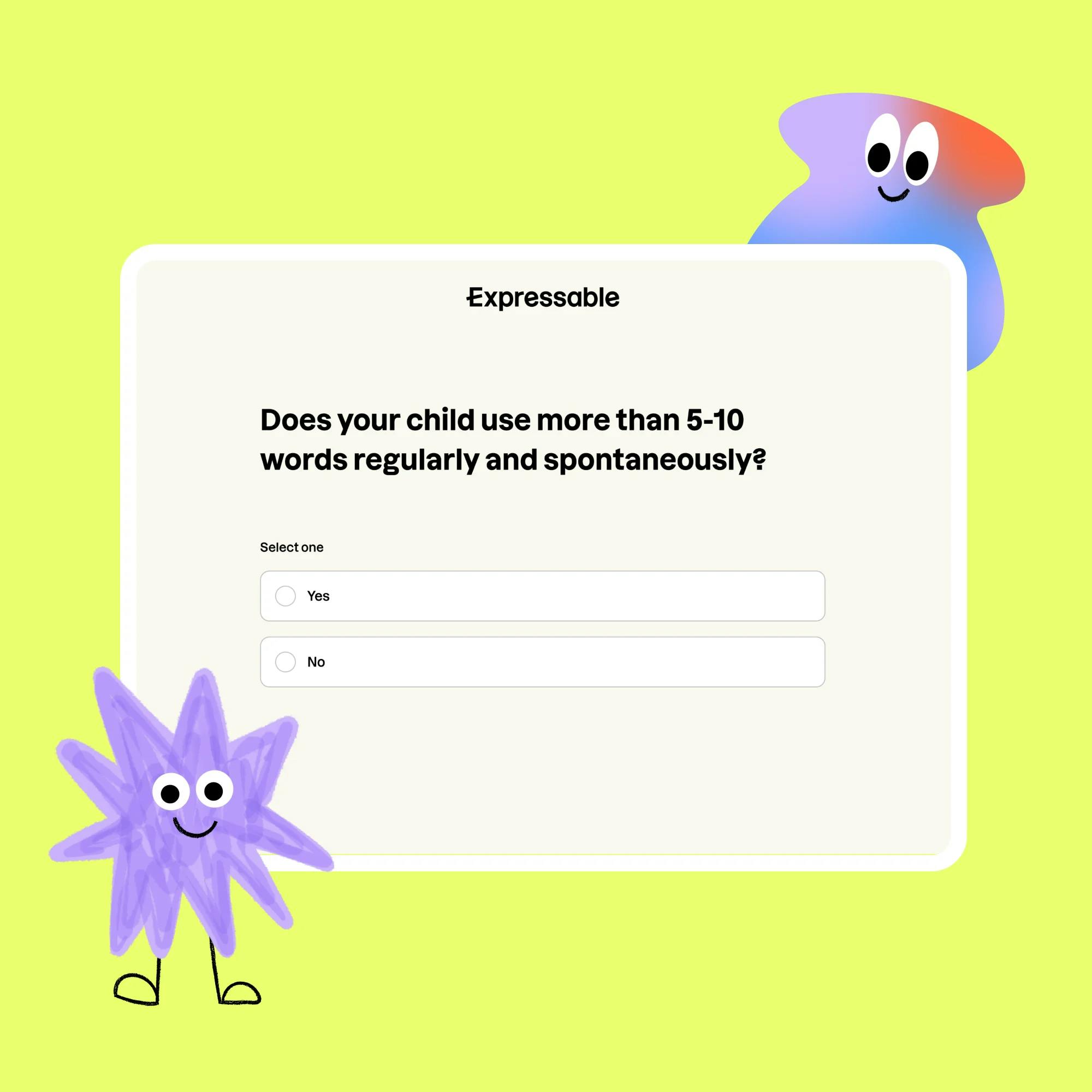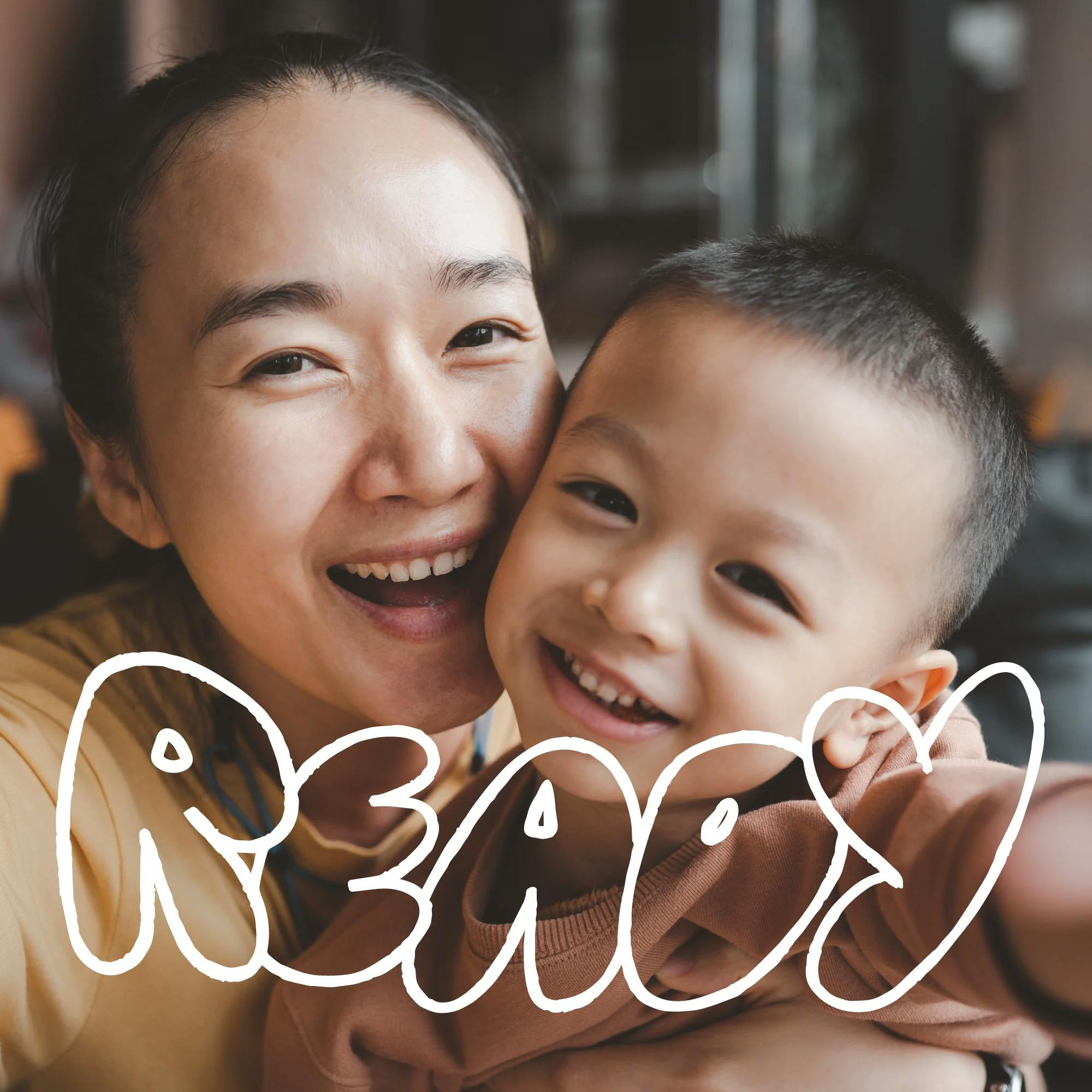If you’re concerned about how your child communicates, it can be hard to know what certain signs or characteristics mean. For example, if your toddler doesn’t talk much, are they simply a “late bloomer”? Do they have a speech delay, or is something else going on?
Of course, a diagnosis like this isn’t something parents have to figure out. But it’s important for parents and caregivers to know what to look for and when to contact a professional. This can help you get your child the support or therapies they may need.
If you’ve heard of childhood apraxia of speech, you may wonder if this condition is linked to autism. They are different diagnoses, and apraxia is not a form of autism. But children who are autistic or who have apraxia can have similar speech characteristics. And research shows the two conditions often coincide.
Read on to learn more about autism and apraxia of speech, their signs and similarities, and what to do if you’re concerned about your child’s speech.


What is childhood apraxia of speech?
Childhood apraxia of speech (CAS) is a motor-planning disorder. In fact, the root of the word, “praxis,” means “planned movement.” The person has the language capacity to talk, but the signals between their brain and mouth muscles aren’t sent correctly.
A child with CAS may know exactly what they want to say, but their brain struggles to communicate with the muscles in their mouth to tell them how to move. People with apraxia have difficulty coordinating the mouth movements needed to turn sounds into syllables, syllables into words, and words into phrases. They are often described as “difficult to understand.”
A child with CAS may know exactly what they want to say, but their brain struggles to communicate with the muscles in their mouth.
Children with apraxia are likely born with the condition. It’s referred to as childhood apraxia of speech because it begins in childhood and is not acquired later. Acquired apraxia of speech results from damage to the brain, such as from a stroke or head injury.
What are the signs of childhood apraxia of speech?
Some hallmark signs of apraxia are:
Inconsistent errors in speech: A child with apraxia may pronounce the same word differently each time they say it. For example, one day they may say a difficult word correctly, but then soon after have trouble repeating it.
Distorting sounds: Because people with apraxia do not place their speech muscles in the right places, sounds often come out incorrectly. Pronouncing vowels can be especially difficult, as can longer and more complex words.
Groping for sounds: People with apraxia can seem like they’re “groping” for words. They may try saying a word several times before they say it correctly.
Inappropriate intonation, stress, or rhythm of words: Children may struggle with the rhythm and flow of speech. They may segment syllables in a word, omit syllables in words and phrases altogether, or pause inappropriately while speaking.


What is autism?
Autism is a naturally occurring difference in processing, learning, and communicating. Sometimes called autism spectrum disorder (ASD), it refers to a broad range of developmental conditions and behaviors. Autistic people often have differences and challenges in speech and nonverbal communication, interpersonal relationships, and social interactions.
Autism, like ADHD, dyslexia, and dyspraxia, is a form of neurodivergence. Neurodivergence refers to people whose brains work differently than what society considers “normal.” Neurodivergent people may have differences in communication, learning, social preferences, and behavior.
It’s common for multiple members of the same family to be autistic, but there is no known cause of autism. This has to do with the complexity of autism, as well as the fact that the characteristics of autism can vary dramatically. There is no evidence that anything parents do or do not do “causes” autism.


What are some of the signs of autism?
While every individual is unique, autism typically affects a person’s communication abilities and social interactions. Autistic kids may exhibit some of the following characteristics:
Delays in spoken language; may talk very little for their age, or not at all
Inability to start or maintain a conversation
Difficulty communicating their needs and desires
Difficulty understanding conversations and instructions; may respond to a question by repeating it rather than answering
Using challenging behaviors (like crying or temper tantrums) instead of words or gestures to communicate what they want
Repeating words or phrases they just heard or that they heard days or weeks earlier
Using a “robotic” speaking voice that lacks inflection or intonation
Difficulty picking up on social cues and understanding how others are feeling
Difficulty sharing attention with someone else and focusing on the same object or event


Do children with apraxia have autism?
As you can see, apraxia and autism are two different diagnoses. Apraxia is not a form of autism. However, research has shown that the two conditions frequently coincide. For example, a three-year study, published in the Journal of Developmental and Behavioral Pediatrics, showed that nearly two-thirds of children initially diagnosed with autism also had apraxia. Let’s look at some similarities between apraxia and autism:
Limited verbalizations (speech sounds and words)
Verbalizations that can be hard to understand
Difficulty taking part in conversation
Different intonation patterns in their speech
With that said, there are significant differences between apraxia and autism:
The limited verbalizations in apraxia are due to a motor planning issue. Limited verbalizations in autism can be due to challenges with the ability to use language to communicate, or a preference to not communicate through speech.
Many times, children with apraxia have strong receptive language skills, meaning they comprehend language well. However, they lack the speech production abilities to say what they need to. Many autistic kids have trouble with receptive language, which makes it hard for them to understand and use language.
Autism can make it difficult to interact with other people in a neurotypical way. This isn’t necessarily a feature of apraxia.
We know that autistic children can also have apraxia of speech. But they remain two separate diagnoses.


Contact a speech therapist for an evaluation
If your child is having any trouble communicating–no matter what you think their diagnosis may be–reach out to a speech therapist. They can assess your child to determine if communication delays are present and whether speech therapy is recommended.
Early intervention is key for kids. So don’t wait! You can find a speech therapist who's right for your child here.
How Expressable Can Help
Concerned your child isn't reaching age-expected milestones? Looking for communication support from a professional? Expressable is a national online speech therapy practice serving children and adults. We treat all major areas of communication and feeding, offer flexible hours including evenings and weekends, and accept most major health insurance plans. We’re proud to have earned more than 3,000 5-star reviews from our clients (4.9/5 average).
Our therapy model is centered on parent and caregiver involvement. Research proves that empowering caregivers to participate in their loved one’s therapy leads to better outcomes. That’s why we combine live, 1-on-1 speech therapy with personalized education and home practice activities for faster progress.
Communication is more than words. It’s how we share how we feel and show who we are. We’re here to help you or your child do just that.

 Abby Barnes, M.S., CCC-SLP
Abby Barnes, M.S., CCC-SLP










